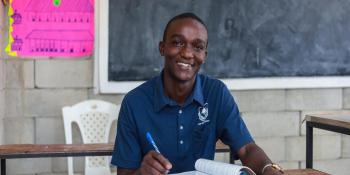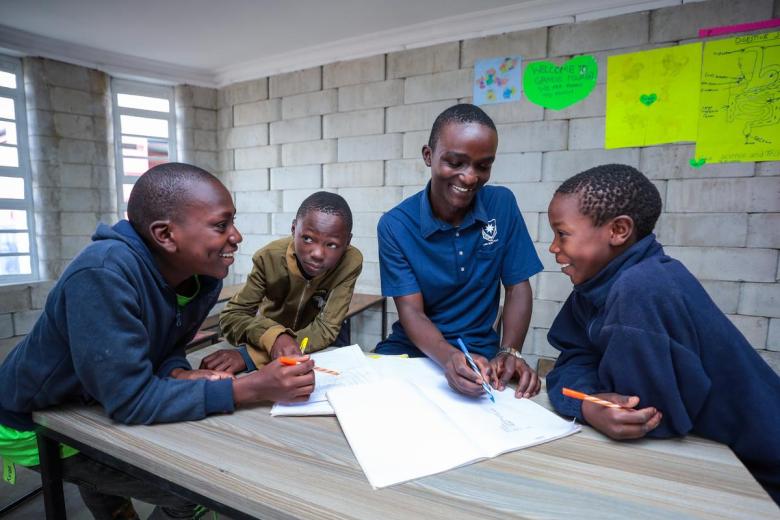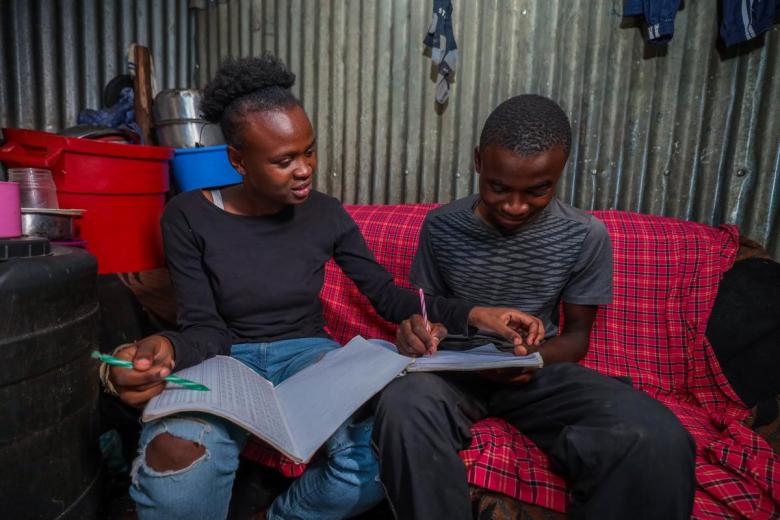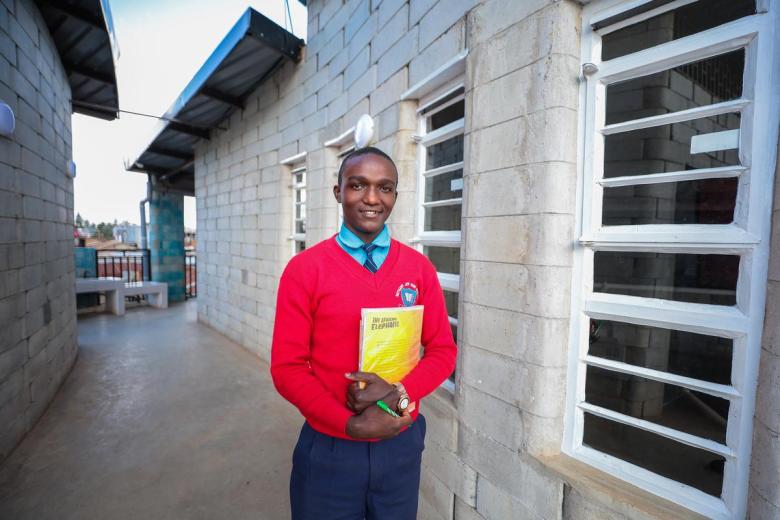
Africa Day 2024: Championing access to affordable housing for a more equitable future for education
As we mark International Africa Day on May 25th, 2024, we celebrate the vibrant mix of cultures, histories, and futures that define our diverse continent. This year’s theme, “Educate an African Fit for the 21st Century: Building Resilient Education Systems for Increased Access to Inclusive, Lifelong, Quality, and Relevant Learning in Africa,” is not only a call to action but also a reminder of the critical work we are doing at Habitat for Humanity to build resilient, inclusive, and sustainable communities across Africa. A report shared by Habitat for Humanity emphasizes the direct link between housing and the Sustainable Development Goals (SDGs), stating that adequate housing contributes to better health outcomes, educational attainment, economic stability, and overall well-being. The report highlights that improved housing can lead to significant progress in achieving multiple SDGs, particularly those related to poverty alleviation, health, education, and sustainable cities.
Truly, this year’s Africa Day theme hits home as it underscores the importance of education in building resilient societies. Education and housing are deeply interconnected, as stable homes provide the foundation for children to learn and grow and through our Home Equals campaign, Habitat for Humanity is advocating for better housing policies worldwide, emphasizing that safe, decent, and affordable housing is crucial for educational success and overall well-being.
Africa has come a long way since the establishment of the African Union (AU) in 1963. The AU has been instrumental in promoting unity, peace, and development across the continent. However, challenges persist including rapid urbanization, climate change, and migration pressures. While our cities have been transformed into engines of economic growth, these challenges have placed an added strain on urban infrastructure and housing all which present as a challenge towards access to education for all.

Championing policy reform to bridge Africa’s housing gap
Indeed, the world faces a significant housing deficit, with an estimated 1.6 billion people lacking adequate housing according to UN Habitat. In Africa alone, the housing deficit affects over 50 million people according to 2020 research by the African Development Bank, reflecting the urgent need for sustainable housing solutions.
At Habitat for Humanity, we have had the privilege of fostering partnerships with diverse civil society organizations, stakeholders, and governments to develop robust policy positions and amplify the voices of those we serve. Together, we are making strides in addressing critical issues such as urbanization, climate change, and migration, all of which are directly linked to providing quality education for all, across the continent.
Impact of Conflict and Climate Change on education in the continent
Conflicts and climate change are major drivers of displacement and housing crises. As of 2022, over 103 million people worldwide were forcibly displaced due to conflict and persecution, with approximately 8.7 million people internally displaced by disasters, many in Africa. These challenges are particularly severe in regions such as the Sahel and the Horn of Africa, where millions are affected by conflicts and extreme weather events which exacerbate housing shortages.
As a key response, Habitat for Humanity Malawi has pioneered the use of sustainable construction techniques to mitigate the impact of climate change. After Cyclone Idai, one of the worst tropical cyclones to hit Africa and the Southern Hemisphere, we assisted affected communities by providing emergency shelter solutions and rebuilding homes. This response also included the provision of temporary shelters and the repair of damaged homes for over 10,000 people, providing them with safer, more resilient housing options.
Among other benefits for the families, this ensured that children had a safe and conducive environment to study which will go a long way in improving educational outcomes.

Strategic Collaboration for a Sustainable Future
While we have achieved great impact, we recognize that the journey to achieving the AU Agenda 2063 and SDG 2030 is a collective effort. Governments, regional bodies, civil society organizations (CSOs), communities, and international partners must work strategically and cohesively. Our role at Habitat for Humanity is to ensure that housing is recognized as a fundamental component of this developmental framework. Adequate housing is not just about shelter; it encompasses dignity, health, and economic opportunity.
In Kenya, for instance, we have been actively involved in legal advocacy and policy reform initiatives aimed at improving land tenure security. Working through and with our partners, we have supported projects that not only provide housing solutions but also support education initiatives. This includes constructing classrooms and sanitation facilities in HomaBay County, in collaboration with the Ministry of Education and the community.

Kofi Annan once said, “Knowledge is power. Information is liberating. Education is the premise of progress, in every society, in every family.” By harnessing the power of knowledge, collaboration, and innovation, we can drive progress across our beloved continent.
As we celebrate International Africa Day, let us reaffirm our dedication to building a resilient and educated Africa. We must continue to advocate for policies that support sustainable urban development, address climate change, and ensure equitable access to resources. Our collective efforts will not only contribute to the AU Agenda 2063 and SDG 2030 but will also pave the way for a brighter, more inclusive future for all Africans. Together, we can shape Africa’s tomorrow—one brick, one book, one dream at a time.
Happy Africa Day 2024!
Blog by Grace Ananda, HFH Africa’s Policy and Advocacy Manager